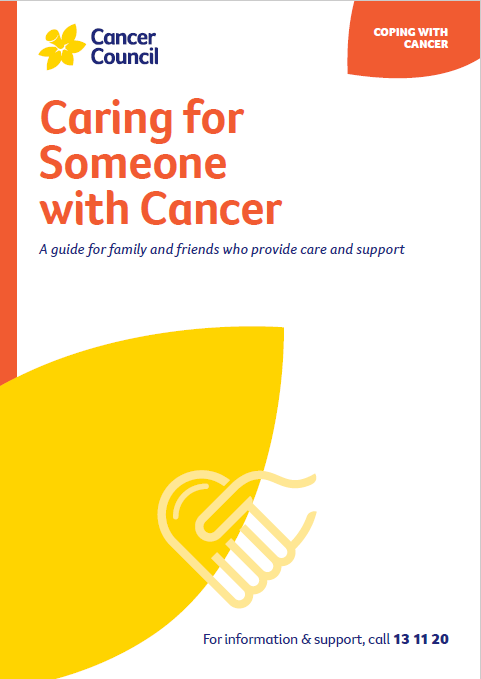- Home
- About Cancer
- Supporting someone with cancer
- Caring for someone with advanced cancer
- Ways to say goodbye
Ways to say goodbye
A life-limiting illness offers you the opportunity to say goodbye. You can encourage the person with advanced cancer to share their feelings, and you can share your own in return. It is understandable that you might not know what to say or worry about saying the wrong thing.
Ask the person if they would like to talk about how they are feeling. This can give you an idea of whether they are ready to talk about the situation – they may be avoiding the topic for fear of upsetting you.
Dealing with denial
Some people who are dying refuse to acknowledge it or may seem to be in denial. This may be the way they cope with the unknown or it might be because they prefer to focus on the present moment. If you find their response upsetting, it may help to share how you feel with a social worker on the treatment team or call Cancer Council 13 11 20.
Special requests and creating a legacy
You can ask the person with advanced cancer if they want to visit a special place, see particular family or friends, contact someone they’ve lost touch with, or see a spiritual care practitioner. They may also appreciate help creating a legacy, such as documenting their life in some way, creating a memory box of keepsakes, or writing letters to family and friends. You can help the person with all these tasks. They are all part of the process of saying goodbye, for all of you.
Supporting end-of-life planning
The person with advanced cancer may find comfort in planning their own funeral so that family and friends don’t have to guess what they would have wanted. If you find it confronting to be involved in the planning, family and friends may be able to help or talk to a spiritual care practitioner, funeral celebrant or end-of-life doula for assistance.
I would find myself rehearsing the eulogy in the shower, and then feel guilty. Talking to others at my support group helped me to realise my thinking was normal.
Julie
→ READ MORE: After someone dies
Podcast: Caring for Someone in Their Last Months
Listen to more of our podcast for people affected by advanced cancer
More resources
Dr Alison White, Palliative Medicine Specialist, Royal Perth Hospital, WA; Tracey Bilson, Consumer; Louise Dillon, Consumer; Louise Durham, Nurse Practitioner, Palliative Care Outpatients, Princess Alexandra Hospital, QLD; Katrina Elias, Carers Program, South Western Sydney Local Health District, NSW Health, NSW; Jessica Elliott, Social Worker, Youth Cancer Services, Crown Princess Mary Cancer Centre, Westmead Hospital, NSW; Brendan Myhill, Social Worker and Bereavement Research Officer, Concord Repatriation General Hospital, NSW; Penny Neller, Project Coordinator, National Palliative Care Projects, Australian Centre for Health Law Research, Queensland University of Technology, QLD; Olivia Palac, Acting Assistant Director, Occupational Therapy, Gold Coast University Hospital, QLD; Nicole Rampton, Advanced Occupational Therapist, Cancer Services, Gold Coast University Hospital, QLD; Shirley Roberts, Nurse Consultant, Medical Oncology, Northern Adelaide Cancer Centre, SA; Dr Elysia Thornton-Benko, Specialist General Practitioner, and UNSW Research Fellow, NSW; Kathleen Wilkins, Consumer; Helen Zahra, Carers Program, South Western Sydney Local Health District, NSW Health, NSW.
View the Cancer Council NSW editorial policy.
View all publications or call 13 11 20 for free printed copies.

